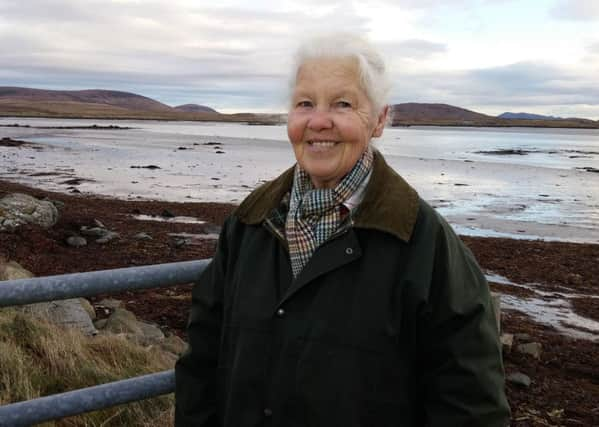Powerful BBC ALBA documentary examines lessons of Chernobyl and Fukushima


Anna Duslkaya, Belarus.
Thirty years ago – on April 26, 1986 – reactor four at the Chernobyl Nuclear Power Plant exploded, spewing out massive quantities of radiation into the atmosphere. Within days the pollution had spread across Europe.
Living on land contaminated with radioactivity would be a life changing ordeal for the people of Belarus.
But also for the Sami reindeer herders of central Norway.
And even the Gaels of the distant Hebrides.
Advertisement
Hide AdAdvertisement
Hide AdFive years ago there was a meltdown at the Fukushima reactor – and thousands of Japanese found their homes, fields and farms irradiated, just as had happened in Europe.
This international documentary to be screened on BBC ALBA – filmed in Belarus, Japan, the lands of Norway’s Sami reindeer herders, and in the Outer Hebrides – poses the question: what lessons have been learned?
The film reveals that a combination of science, local lore, and the commitment of ordinary men and women, has made life possible in much of the contaminated land. The filmmakers gained unique access to nuclear experts, health officials, and the farmers, reindeer herders and crofters whose lives, land and livelihoods were in jeopardy following the two nuclear disasters.
We learn that five years ago, the residents of Fukushima turned to the people who entirely understood their problem when the Japanese nuclear plant was wrecked by a tsunami – the people of Belarus. For quarter of a century, Belarusians had been evolving ways to live heathy lives and bring up healthy children in areas with higher than normal levels of radiation.
Advertisement
Hide AdAdvertisement
Hide AdThey had developed a culture of public education, health care, and radiation monitoring that allows them to lead relatively normal lives. The Japanese, including young mothers, visited Belarus to learn the lessons.
The first advice they got was from a Belarus mother: “Don’t panic, Japanese mothers!” International co-operation proved successful in lessening the impact of the Fukushima disaster on Japan, by showing them how to adapt to pollution. The Sami reindeer herders of central Norway too had to change their ways – but today are once again producing healthy meat, and living normal lives.
In the Outer Hebrides, testing the land, sea and air for radiation has been going on for three decades since the Chernobyl disaster.
Crofters recall the restrictions that were placed on the moving and selling of sheep – and how it affected their lives and incomes.
Advertisement
Hide AdAdvertisement
Hide AdMorag MacLeod of South Uist remembers lambs being born with two heads and six legs – deformities she’d never seen before.
The Chernobyl radiation fell with the rain – crofter Ena MacDonald (pictured above) and her son Angus had been working outside on the family croft during the worst fall of contamination.
She recalls the worry she felt over the possible impact on their health. If radiation didn’t affect Hebrideans, worry and stress certainly did.
Mairi Macinnes of South Uist believes the pollution changed the Outer Isles for ever. For many years, the island folk were concerned about using seaweed to fertilise their land. And there is evidence that some Sami traditions have been damaged by the changes they have had to make to their way of life.
Advertisement
Hide AdAdvertisement
Hide AdOne lesson that has been learned from Chernobyl and Fukushima is that a nuclear disaster is more than just a scientific challenge. It is also a social, cultural and economic one.
Directed by Oliver Julien, for the French independent producer, Bellota films, Chernobyl, Fukushima: The Lesson was co-produced by Scottish independent production company Caledonia TV.
The documentary is narrated by Michael Buchanan. Michael presented an award-winning documentary for the Gaelic language current affairs programme, Eòrpa, which marked the 10th anniversary of the Chernobyl disaster.
Chernobyl, Fukushima: The Lesson will be screened on BBC ALBA on Tuesday 26 April from 9.00 until 10.00pm.